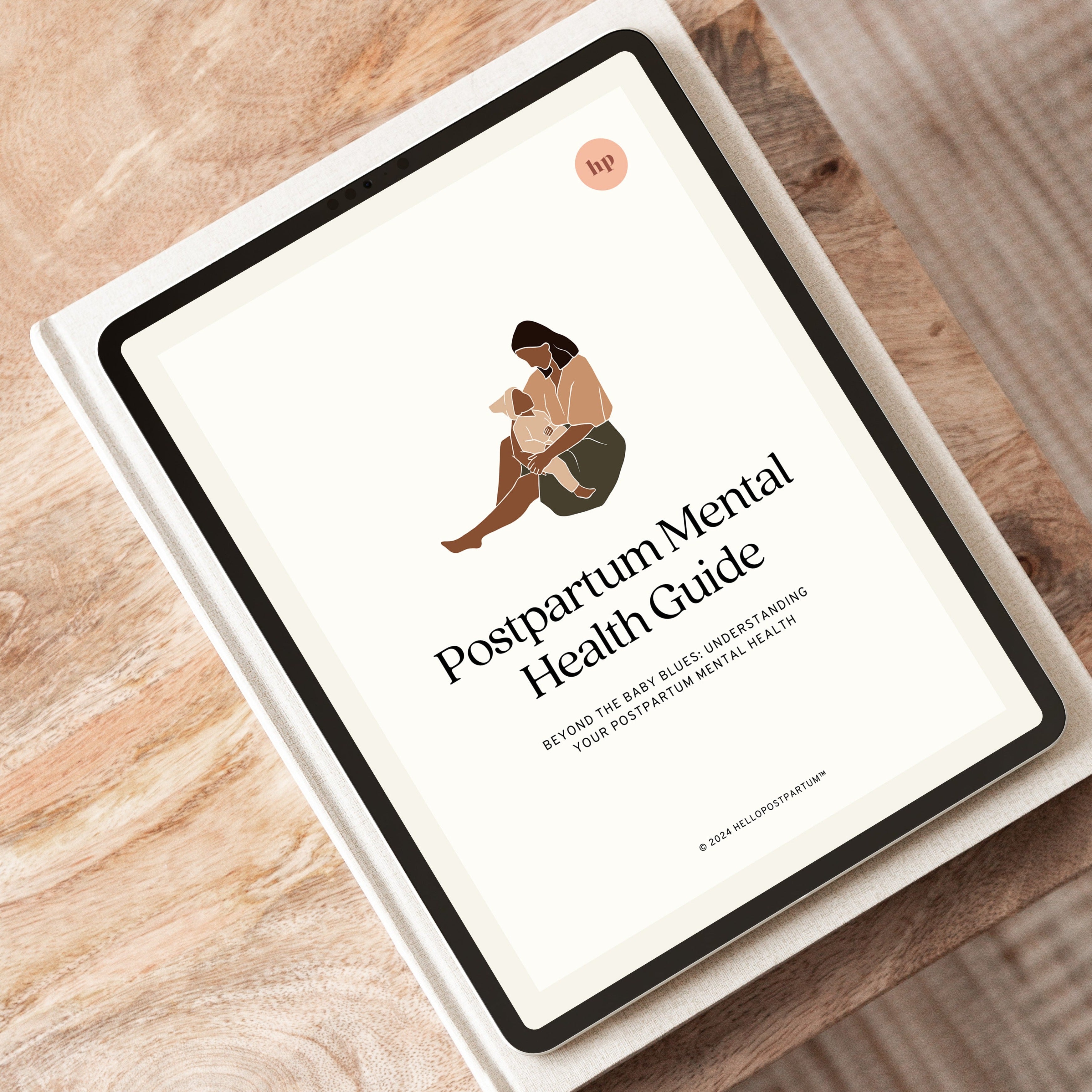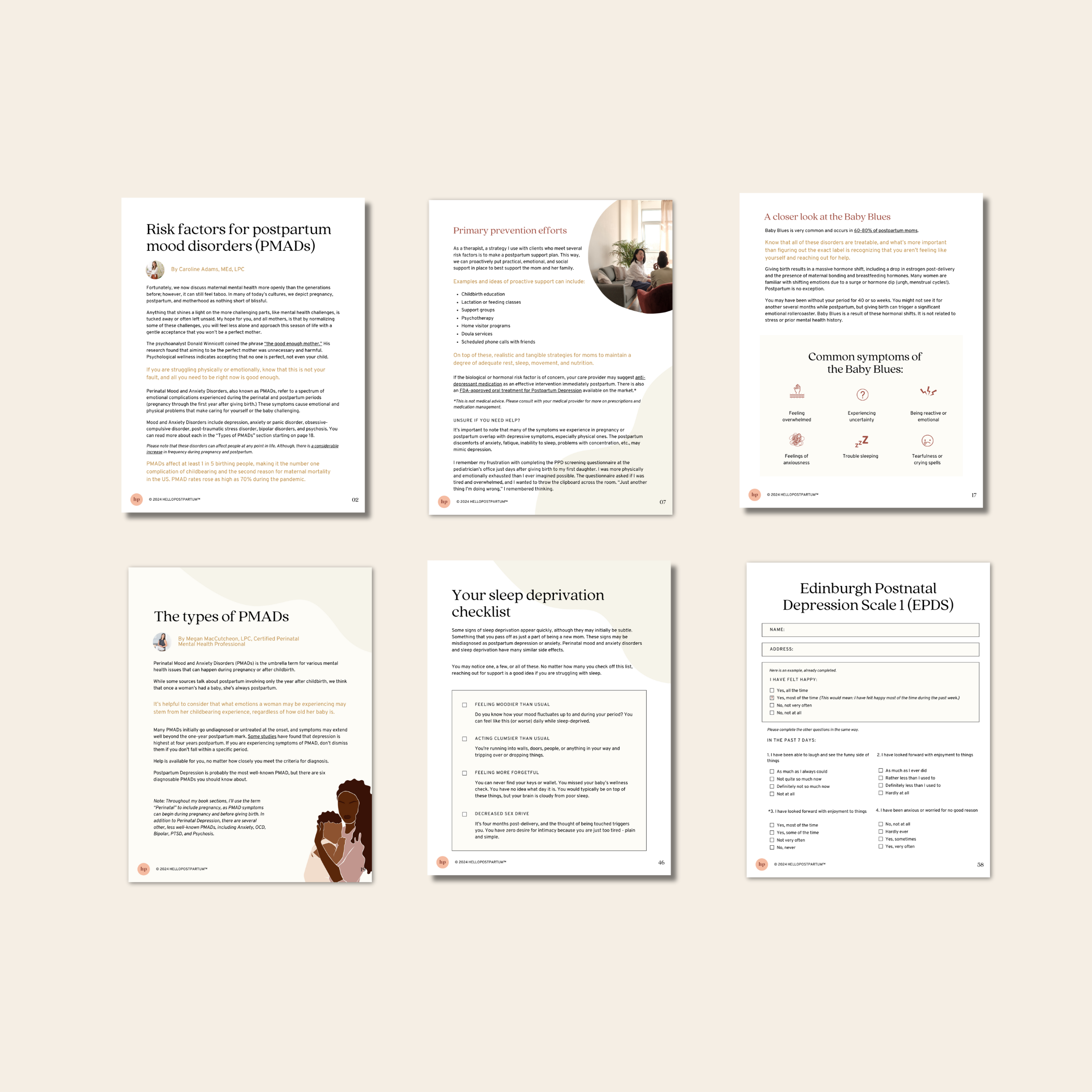




Postpartum Mental Health Guide
Automatically take 20% off in May! Did you know that 1 in 5 who give birth will experience perinatal mood disorder? This comprehensive 60+ page guide will help you understand and protect your mental health throughout postpartum and beyond.
Authored by licensed postpartum mental health experts, this eBook is packed with valuable information you need to know about your mental health after birth.
Per copyright law, you may not share, duplicate, or distribute these books without written permission from Hello Postpartum.
You'll receive your eBook directly in your inbox at the email address used at checkout.
Are you gifting it? You can enter your recipient's email at checkout or send us an email after the purchase, and we'll send them instructions on how to download their gift.
Would you know the warning signs?
1 in 5 experience a mood disorder after birth
It's true. Studies show that up to 20% of new moms experience a postpartum mental health disorder up to one year after birth. Many experts estimate this number is even higher, but cases often go unreported. But what's "normal," and what requires more support? This comprehensive 60+ page guide will help you understand and protect your mental health after birth.
"I love your (Postpartum Mental Health) guide. It is easy to read and has great information."
CHRIS RAINES, MSN RN APRN-BC PMH-C, & PSI BOARD CHAIR
Your mental health go-to
What's included in this eBook?
This isn't just an eBook. It's a comprehensive guide filled with information you won't find in other books on the market.
• A 60+ page eBook by licensed practitioners
• Sleep deprivation checklist
• Two (2) printable mental health checklists
• Five (5) conversation prompts to ask for help
• Fill-in-the-blank prompts for talking to your provider


for your mental health
Expert-written resource
Authored by licensed postpartum mental health experts, this eBook is packed with everything you need to know about caring for your mental health after birth. It's a must-read for any new or expecting parent.
If you are worried or unsure how postpartum will affect your mental health or want to be as prepared as possible, this book will outline everything you need to know. Your mental health is a critical and overlooked part of becoming a parent.
comprehensive support
What will I learn?
This mental health guide outlines everything you need to know:
• Differences between baby blues and postpartum depression
• The types of perinatal mood and anxiety disorders
• Signs it's time to ask for more support (and how to do it!)
• Navigating mental health after a loss or miscarriage
• Common risk factors for developing mental health disorders
• Typical emotions and feelings after birth
• How sleep deprivation impacts your mental health
• How to ask for - and receive - the help you deserve

This eBook was written by postpartum mental health experts, including a licensed social worker, a PMH-C therapist, a pediatric sleep consultant, and more.
Upon a completed checkout, you'll receive an email with a link to download your eBook. If you don't see anything within a few minutes, we recommend checking your "Spam" or "Promotions" folder.
Once you've successfully downloaded your eBook to your device (either your phone or computer), you can quickly and conveniently access it for easy reading. Additionally, all of our postpartum eBooks are formatted for print. If you prefer a paper copy, you can send the file to a local print shop for easy printing and binding.
Yes! Simply check the box 'Is this item a gift?' and enter your gift message and select a gift card at checkout. Since the book is digital, you can either email it to yourself or your recipient. We can then write a hand-written card to let them know about their eBook, if you'd like!
While we love sharing, it's important to know that per copyright law, you may not share, duplicate, or distribute these books without written permission from Hello Postpartum. Consider gifting your friend their own copy!


